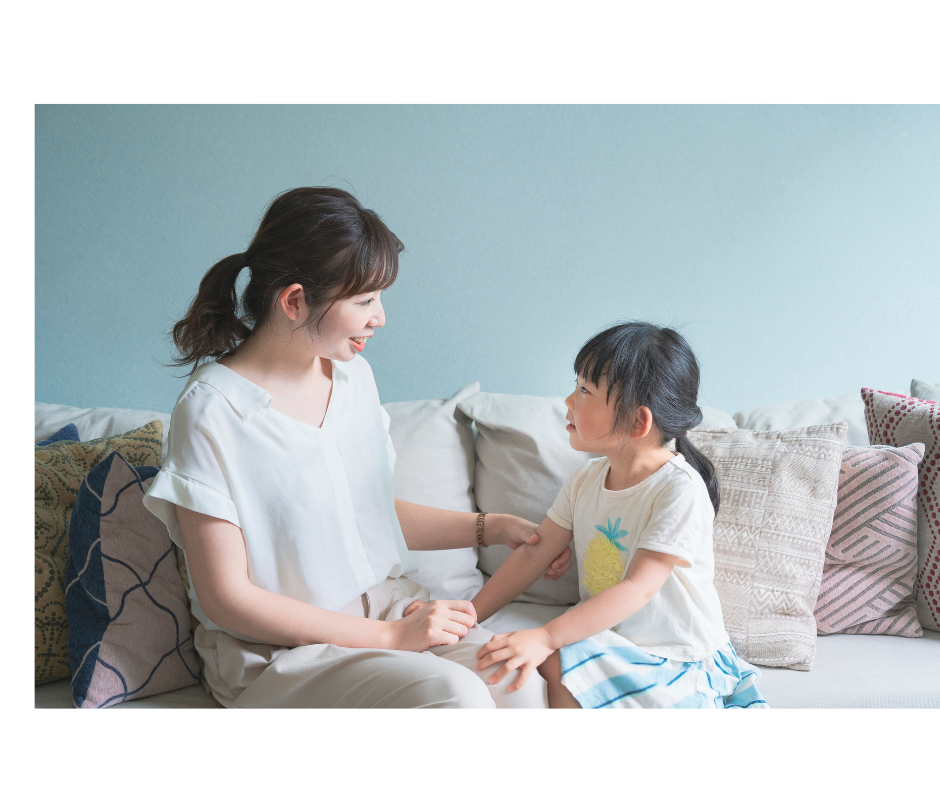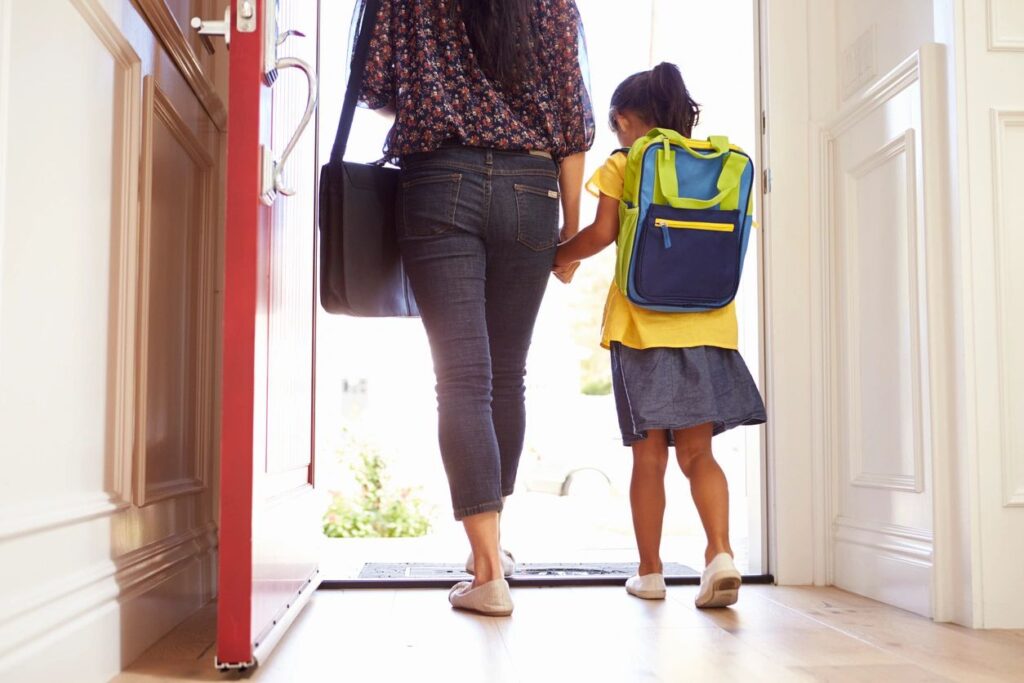Read time 7 mins

Frances Maguire Magspens.co.uk
Frances has worked in education for 25 years. Specialising in Early Years, she has just completed a Masters in Education at Chichester University. Frances works in Hampshire teaching in Reception and KS1 classes. Frances has also taught adult education Early Years Level 3 courses to the aspiring childcare workforce.

Anxiety in Children is a growing problem for families. There are many pressures that children feel in our modern world with friendships, peer pressure, time spent online and extra curricular expectations to name a few. Here is help and advice for parents of anxious children. Understanding what anxiety is and what might cause it, can help in addressing it effectively. This article gives advice into what anxiety is and how to manage it at home. If you’re concerned about your child’s anxiety, it is important you contact your GP to seek guidance from a mental health professional. They can help identify underlying causes and develop appropriate strategies for managing and reducing anxiety.
Links are provided for further advice.
What Is Anxiety?
Anxiety is a feeling of worry, fear, unease and sometimes sickness. It can become an overwhelming experience. It can also affect daily life and limit the things children feel able to do. Anxiety is difficult to reason with and will not just disappear with a quick word or distraction. Anxiety is not a weakness. In fact, sometimes it can be a serious issue which requires professional help.
Many children worry. This is a normal part of growing up and learning to problem solve. However, it can be more serious and interfere with children’s home life and education. Anxiety becomes a problem when a child or young person experiences symptoms for several weeks or months. As parents you may feel overwhelmed and unsure of how to help. Read on for advice and guidance to help your child. For further information visit NHS What is Anxiety

Types Of Anxiety.
There are several different types of anxiety. Knowing this will help you decide how to assist your child.
Generalised Anxiety: This disorder involves excessive, uncontrollable worry about various aspects of daily life, such as school performance, health, or family issues. Children will often find it difficult to relax and may experience physical symptoms like headaches or stomachaches.
Separation Anxiety: Children with this disorder feel intense fear or anxiety about being separated from their caregivers. They may worry excessively about the safety of their loved ones or have trouble going to school or other places without them.
Specific Phobias: Children with specific phobias have an intense, irrational fear of a specific object or situation, such as spiders, heights and dark. This fear can lead to avoidance behaviour and significant distress.
Panic Disorder: This disorder involves recurrent, unexpected panic attacks—sudden episodes of intense fear that come on quickly and peak within minutes. Symptoms might include a racing heart, shortness of breath, dizziness, and feelings of impending doom.
Obsessive-Compulsive Disorder (OCD): Children with OCD experience persistent and intrusive thoughts (obsessions) and engage in repetitive behaviors or mental acts (compulsions) to reduce the anxiety caused by these thoughts. So, for example, they might wash their hands repeatedly to feel clean.
Post-Traumatic Stress Disorder (PTSD): This can develop in children who have experienced or witnessed a traumatic event. Symptoms include flashbacks, nightmares, severe anxiety, and avoidance of situations that remind them of the trauma.
Social Anxiety: This disorder is a fear of social situations or performance situations where the child is exposed to possible scrutiny. The anxiety stems from fears of being embarrassed or judged by others.
Selective Mutism: Anxiety is from fear of being embarrassed or judged by others. This is often associated with social anxiety.
For more information about anxiety types visit NHS Anxiety Types Anxiety Disorders
Causes Of Anxiety.
Anxiety in children can stem from a variety of sources, often involving a mix of genetic, environmental, and psychological factors. Here are some common causes:
- Anxiety can run in families. If a parent or close relative has an anxiety disorder, a child may be more likely to develop one as well.
- Overprotective or overly critical parenting can contribute to anxiety. Children might learn to be anxious if they perceive their environment as threatening or if they feel they must meet high expectations.
- Stressful Life Events: Major changes and stressful events, such as moving to a new home, parental divorce, the death of a loved one, or the arrival of a new sibling, can trigger anxiety in children.
- Traumatic Experiences: Exposure to trauma or abuse can lead to anxiety disorders. Children who have experienced such events might have trouble managing their emotions and responses to stress.
- Social Factors: Problems with peers, bullying, or difficulties in social interactions can contribute to anxiety. Children who feel isolated or excluded may develop anxiety about social situations.
- Academic Pressure: Stress related to school performance, including pressure to excel, fear of failure, or difficulties with schoolwork, can lead to anxiety.
- Overload of Responsibilities: Taking on too many responsibilities and extracurricular activities can cause stress and anxiety, especially if a child feels overwhelmed.
- Health Issues: Chronic illness and or medical conditions can contribute to anxiety. This is especially true if they involve frequent medical visits and treatments.
- Cultural and Societal Influences: Cultural expectations and societal pressures, including issues related to appearance, success, and social status, can also impact a child’s anxiety levels.

Signs And Symptoms.
- Regularly avoiding everyday experiences and situations, such as school, social events, playing, sport
- Frequent physical complaints, such as tummy aches and headaches
- Feeling tearful
- Sudden emotional or angry outbursts
- Difficulty sleeping or having nightmares/bad dreams
- Reduced appetite
- Seeking reassurance often/being clingy
- Detached, unwilling to talk or join in at home
- Being preoccupied or unable to concentrate
- Over planning situations and overthinking things
Often many of these types of anxiety can be helped at home. Sadly sometimes you will need to seek help and advice from professionals. Do not rely on the opinions of friends and family. While helpful, children with severe anxiety will need medical help. Below are ideas for help at home and advice about when you need to see a professional along with links to helpful organisations.
Helping Your Child.
If your child is showing ongoing signs of anxiety, you can support them at home in the following ways:
Ensure you include your child’s school. Teachers are very understanding and experienced when it comes to helping children settle when they are anxious. Teachers understand the symptoms and may be able to offer advice. Most schools have an ‘Emotional Literacy Support Assistant’ (ELSA) who can help with a range of issues which may be causing anxiety.
Encourage your child to talk about their feelings and let you know when they get overwhelmed. Explain these feelings are common – we all feel worried or scared sometimes. Do be careful not dismiss their concerns. It will help your child if you acknowledge you understand they are worried and you want to help.
If there is a particular situation your child finds challenging, support them to gradually do the thing that makes them anxious. Make a practical plan together for coping with anxious feelings in the future, such as breathing techniques or reassuring phrases to focus on. Children’s yoga is a recognised way of helping control and relieve some anxieties Try children’s yoga on youtube https://www.youtube.com/user/cosmickidsyoga Many schools include yoga and mindfulness now to help children relax.
Books about particular topics can also help with issues such as starting school, having a new baby or friendship issues. Reading to children is relaxing and reassuring. Children can be introduced gradually to situations they are concerned about.
Take time out to have fun together and take the focus off feelings of anxiety.
Help your child to have healthy routines that include enough good-quality sleep, regular outdoor exercise, eating well and avoiding excessive screen time.
If you are a parent or carer with anxiety, it is important to also care for your own mental health and seek help when you need it.
Useful Resources And Advice For Parents And Teachers.
Childline mental health information
NHS Supporting young people with mental health needs
NSPCC Children’s mental Health
6 ways to support children with mental health. Help for parents and schools.

